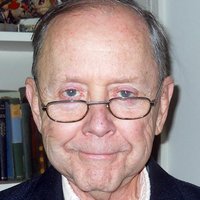Catholic Distance University Has Been an Innovator for 40 Years
CDU’s expansion — in scope as well as size — has been dramatic since its founding in 1983.

Forty years ago, Marianne Evans Mount had a bright idea. Why not a Catholic correspondence course in religious education? Four decades later, that idea has grown into a fully accredited, degree-granting institution — the Catholic Distance University — with an international student body, expanding curriculum and big plans for the future.
“We bring education directly to the learner,” Mount says. “It works. People are transformed by it.” Noting that 90% of the university’s graduates now serve the Church, either as volunteers or in full-time professional positions, she anticipates that working with bishops and dioceses will remain “a key part of our future.”
In July she will be succeeded as CDU president by Maria Sophia Aguirre, a Catholic University of America economics professor who has served on presidential commissions, represented the Holy See in international organizations, and lectured and published widely.
Looking back over the last 40 years, Mount points out that CDU was an innovator from the start. The Catholic Home Study Institute — its name back then — began life in Arlington, Virginia, as the first catechetical institute in the U.S. approved by the Vatican to award a catechetical diploma earned by correspondence.
Growth and expansion — in scope as well as size — have been dramatic since then. Milestones include regional accreditation in 1986 enabling students to receive credits from colleges for CDU courses, launching a master’s degree program in religious studies in 2000, and adding a bachelor’s degree in 2005. At this point, too, the school became the Catholic Distance University, a name change signaling its new status.
In 2015 it shifted its headquarters to Charles Town, West Virginia. Since then the university has continued to surge ahead in the all-important area of accreditation, including the Association of Theological Schools in 2020 and in 2022 the prestigious Higher Learning Commission. The latter recognition, Mount says, places CDU on “a level playing field with every other university”
With an $879,000 grant from the Lilly Endowment, the university is currently introducing a Spanish-language associate degree curriculum in Catholic social teaching. Designed for Hispanics, it will start enrolling its first students in the fall. An English-language graduate certificate program in social doctrine began earlier, with the first course taught by professor Helen Alvaré of George Mason University law school.
As a distance-learning school, CDU features geographical outreach. At present, it has students in 49 states, while another 9% of its student body is located in 24 countries outside the U.S. Almost from the start, too, it has offered “faith formation” correspondence courses for prison inmates. With financial aid from the Order of Malta and the prison ministry of St. Benedict’s Abbey in Kansas, the program so far has reached 350 prisons all across the United States. Currently, more than 1,500 students are receiving daily lessons, several with an eye to earning degrees. “My spiritual development and Catholic education is something I plan to continue the rest of my life,” a Colorado inmate wrote.
As the Catholic Distance University prepares for a new president, planning is underway to expand and diversify the curriculum, launch new cooperative programs with other educational institutions, and expand internationally. One thing that won’t change, though, is the school’s commitment to remaining an authentically Catholic institution committed to serving the Church by providing high-quality education via distance learning to students wherever they are.
“Our curriculum is rooted in a strong Catholic identity that fosters a transformative encounter with the living word of God,” Mount says. Forty years on, that will continue.












